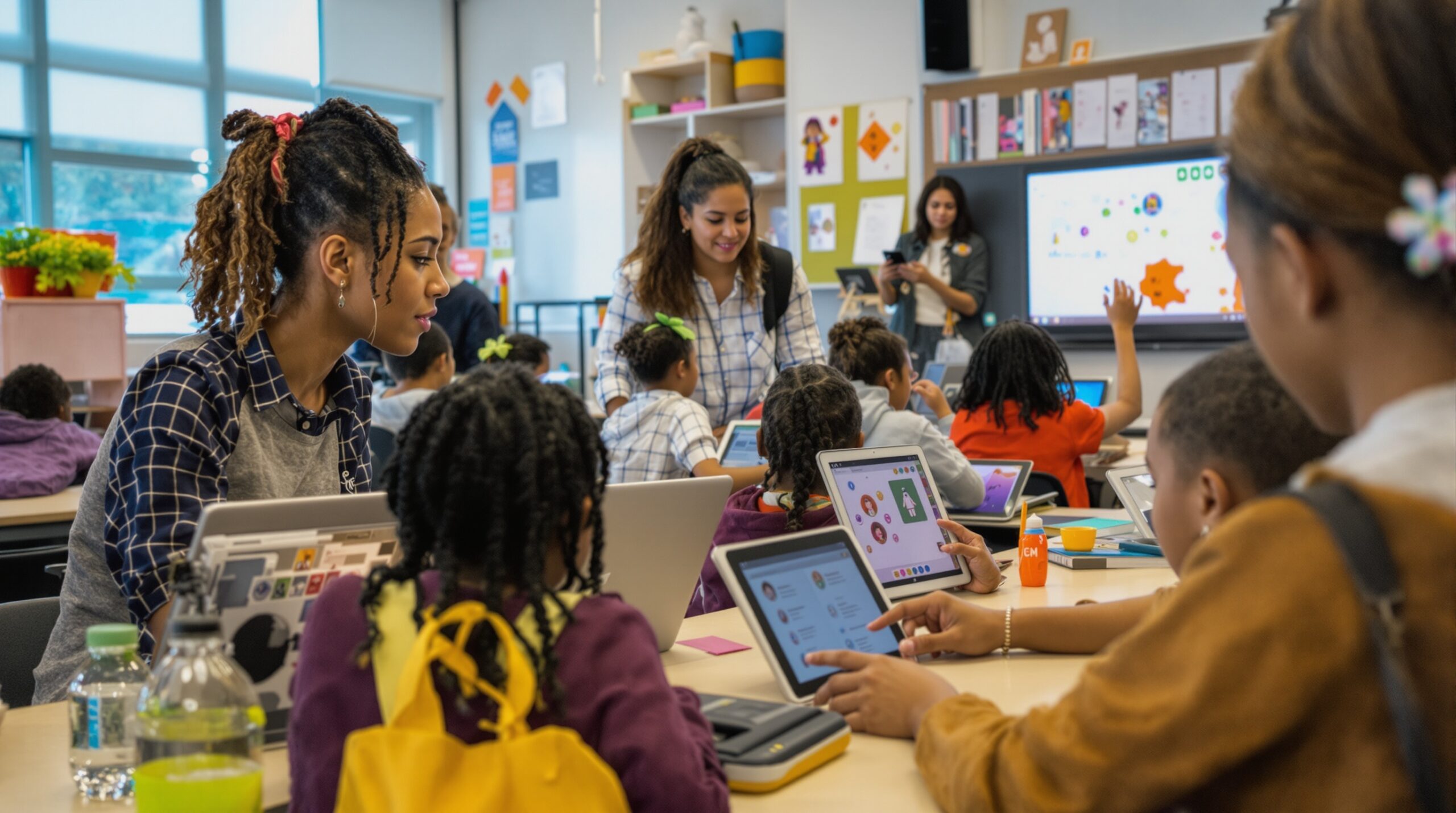Personalized learning has long been a goal for educators and students worldwide. Traditional classrooms often struggle to meet individual learning needs. However, artificial intelligence (AI) now drives a revolution in online education. Innovative AI tools are enabling adaptive, engaging, and individualized learning experiences for students everywhere.
The Rise of Personalized Online Learning
Education technology has advanced rapidly over the past decade. Online platforms offer convenience, extensive resources, and flexibility for students. Despite these advantages, many programs lack true personalization. One-size-fits-all content does not address different learning speeds, styles, or interests. Such a mismatch leaves some students bored while others struggle to keep up.
Personalized learning adapts content and pacing to each learner’s needs. This approach increases engagement, builds confidence, and improves outcomes. AI makes personalized learning scalable and practical, far beyond the limits of traditional methods. Tools that use data and machine learning can support each student’s unique educational journey.
How AI Powers Personalization
Modern AI tools analyze large amounts of learning data in real-time. They assess how each student interacts with course material, identify strengths and weaknesses, and tailor content accordingly. This dynamic approach accelerates progress by targeting support where it is needed most. Through frequent assessments, the AI system adjusts lessons and challenges for optimal learning.
For instance, if a student excels in math concepts but struggles in reading comprehension, the AI notes these patterns. It then suggests extra reading exercises and supplemental resources. Similarly, students get opportunities to deepen their strengths with advanced challenges. This continuous feedback loop significantly boosts motivation and retention.
Features of an Innovative AI Learning Tool
Today’s most advanced AI tools incorporate several cutting-edge features to deliver a transformational learning experience. Some key elements include adaptive course recommendations, interactive practice, instant feedback, and gamified incentives.
Adaptive Course Recommendations
Every student is unique, with their own ambitions and challenges. AI tools build customized learning pathways by recommending activities and resources tailored to each learner. The system considers recent performance, knowledge gaps, learning preferences, and even career aspirations. This ensures students invest their time and effort where it produces the best results.
Interactive Practice and Real-Time Feedback
Regular practice is vital for mastery, yet repetitive drills can quickly become tedious. Innovative AI learning platforms deliver diverse, interactive exercises adapted to individual skill levels. The system offers hints, explanations, and corrective feedback in real-time. Students can immediately learn from mistakes and build confidence as new topics are introduced.
Gamification and Engagement Tools
Staying motivated in online learning can be difficult without classroom camaraderie or set schedules. Gamification elements—such as badges, leaderboards, and progress streaks—inspire friendly competition and sustained participation. AI tools leverage behavioral data to personalize rewards and recommend challenges that keep students engaged and on track.
Benefits for Students and Educators
The benefits of AI-powered personalized learning extend well beyond individual students. Educators gain valuable insights through actionable analytics. These insights allow teachers to pinpoint struggling areas and provide targeted interventions. Automated graded assignments also free educators from repetitive tasks, so they can focus on meaningful student support.
For students, the advantages are clear and compelling. Personalized learning plans mean each learner advances at their own pace. This reduces frustration, boosts self-esteem, and increases the likelihood of success. Varied and adaptive content keeps lessons interesting, so students remain curious and motivated by visible progress.
Accessibility and Inclusivity Through AI
Not all students learn in the same way or have access to the same resources. AI tools help bridge this gap by automatically adjusting to individual abilities, language preferences, and accessibility needs. Features such as text-to-speech, translation, and visual adjustments make learning more inclusive than ever. This ensures every student has a fair opportunity to succeed.
Supporting Diverse Learning Styles
AI can identify whether students prefer visual, auditory, or kinesthetic instruction. The system then presents materials using the optimal format for each learner. This level of adaptability helps all students, including those with learning differences or disabilities, to fully participate and comprehend lessons.
Challenges and Ethical Considerations
No technology is without drawbacks. Implementing AI in education presents challenges in terms of data privacy, algorithmic bias, and teacher adoption. It is essential to maintain transparency about how student data is collected and used. Developers must work closely with educators to avoid reinforcing existing inequities or misinterpreting learning patterns.
Despite these challenges, the potential benefits of AI-driven personalized learning are profound. Ongoing updates and oversight help ensure that AI tools remain ethical, reliable, and focused on student well-being. Educators and developers must collaborate to keep students at the heart of every decision.
The Future of Personalized AI Learning
As AI technologies become increasingly sophisticated, personalized online learning will only become more effective and widespread. Future developments may include virtual tutors capable of holding natural conversations, immersive simulations, and AI mentors that guide students through long-term educational journeys. Integrating emotional intelligence and cultural context will further humanize online learning experiences.
Industry experts predict ongoing collaboration between tech innovators, educators, and students. This partnership will shape AI tools to be more adaptive, intuitive, and relevant to real-world challenges. As a result, a new era of accessible, engaging, and effective education is on the horizon.
Conclusion: Empowering Students Through Innovation
Innovative AI tools are redefining what is possible in personalized online learning. By adapting content and pacing to each student’s needs, these platforms foster deeper engagement and better outcomes. While challenges remain, thoughtful development and ethical oversight will ensure that AI in education is a force for good.
Schools, parents, and students stand to benefit tremendously as AI learning technologies continue to evolve. These tools hold the promise of lifelong, personalized education for learners of all backgrounds. The intersection of innovation and inclusion signals a brighter future for students everywhere.

